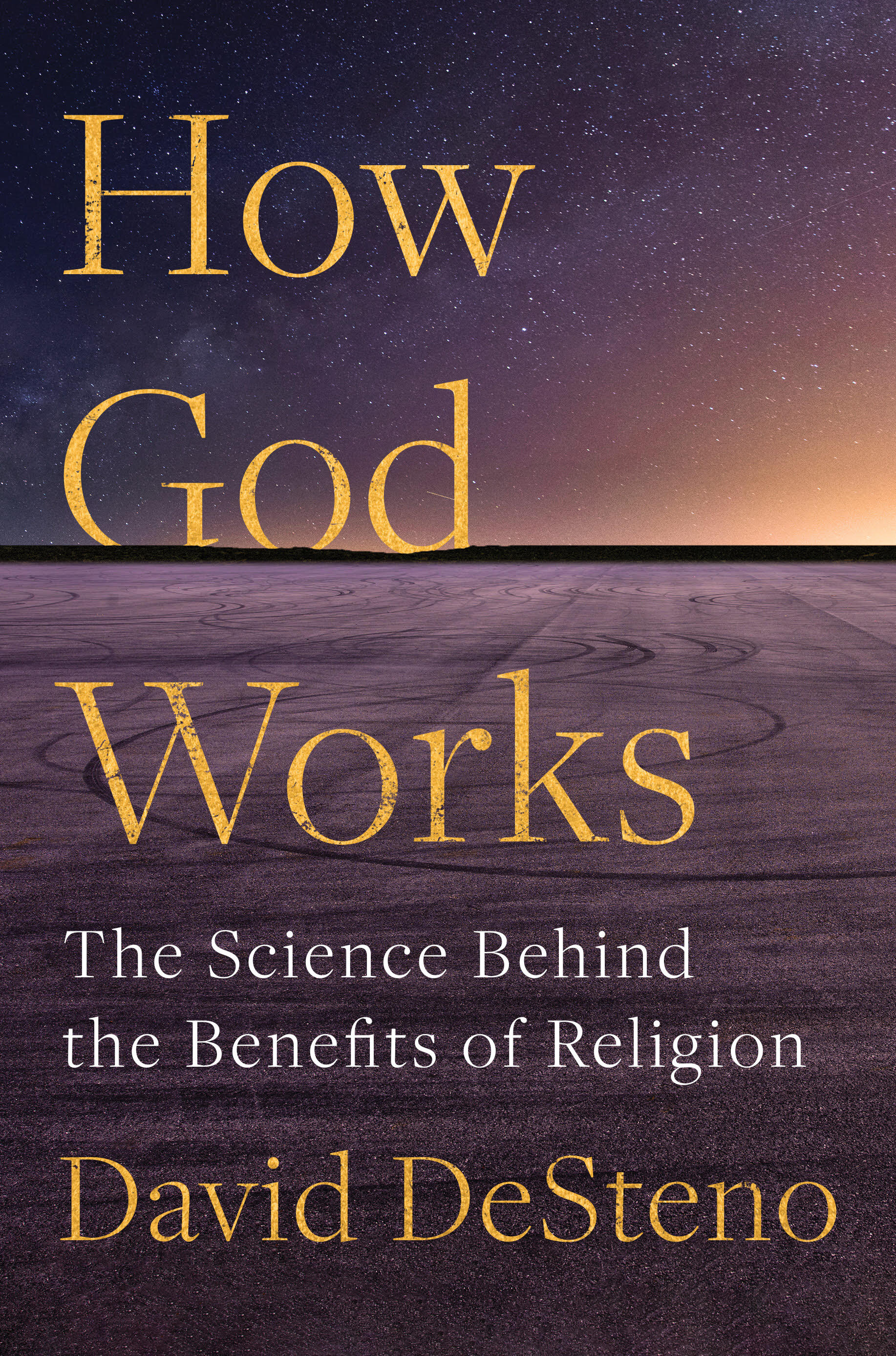
How God Works: The Science Behind the Benefits of Religion
Pioneering psychology professor David DeSteno demonstrates why religious practices and rituals are so beneficial to those who follow them—and to anyone, regardless of their faith (or lack thereof).
Scientists are beginning to discover what believers have known for a long time: the rewards that a religious life can provide. For millennia, people have turned to priests and rabbis, imams, and shamans to help them deal with issues of grief and loss, birth and death, morality and meaning. In this absorbing work, renowned research psychologist David DeSteno reveals how numerous religious practices from around the world improve emotional and physical health.
With insight and acuity, DeSteno chronicles the lifespan of religious rituals and traditions from birth to death. He explains how:
The Japanese Shinto rituals surrounding childbirth help insulate mothers from postpartum depression.
Buddhist meditation reduces hostility and increases compassion when we need it most.
The Jewish practice of sitting shiva reduces the pain associated with grief.
The Christian practice of saying grace before meals increases empathy.
When strangers move in synchrony with each other (a major part of many religious rites), they become more loyal and committed to each other almost immediately.
The Apache Sunrise Ceremony makes teenage girls better able to face the rigors of womanhood
And more.
The best part is, you don’t need to be religious to benefit from the treasure trove of wisdom that religion has to offer. Many items in religion’s “toolbox” work on the mind outside of belief. Using cutting edge science, DeSteno shows how to incorporate some of these practices to help all of us live more meaningful, successful, and satisfying lives.

What People Are Saying About How God Works
“An exceptional and expertly researched study of the science of believing in the divine … This thorough, insightful study will convince readers that worship itself is a boon for mental and physical health.”
“What do you get when you cross spiritual wisdom with modern science? A whole bunch of smart ideas about how to live a happier, healthier, and more meaningful life. A delightful and illuminating read.”
“A masterful and continually surprising tour of how spiritual practices around the world anticipated the latest evidence-based insights from the science of behavior change. DeSteno provides a compelling scientific defense of the power of ancient traditions and shows how we can all use them to improve our health, connection, and happiness.”
“How God Works makes a brilliant case for ‘spiritual technologies’ for the believer, the skeptic, and the atheist alike. DeSteno offers a scientific explanation for why and how the prayer, rituals, and community-building practices of the world’s religions help make us more resilient, happy, and moral people.”
“This is a book on religion that even an atheist can love. One of the leading psychologists of our time shows how the world’s religions provide technologies that anyone can use to live their best lives. Clear, engaging, and very persuasive, How God Works will change the way you think about faith and science.”
“In amiable prose, Mr. DeSteno takes us through the human life cycle, conveying religious practices from around the world and what the scientific literature has to say about them.”
“How God Works explores the rituals of religions and delves into the science of psychology to show how seamlessly the two can work together. This isn’t a work about one god or one religion. It is a thought provoking, useful book that points us toward happier, healthier lives.”
“DeSteno shows convincingly that whatever we think of the underlying theology, religious rituals work! Fine-tuned over centuries of practice, they help us cope with major life transitions, comfort us in times of fear or grief, and encourage us to show gratitude, exhibit compassion, practice community, and find enduring happiness.”
More About How God Works
How God Works Conversation Series
David DeSteno and PopTech welcome you to explore a new way to think about the science behind spiritual practices.
